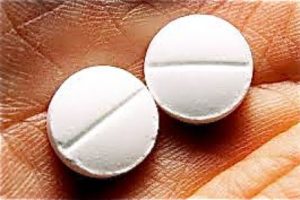Blood Thinning Therapy
INR/Warfarin Clinic
The Metropolitan Heart and Vascular Institute sees thousands of patients per year for management of dose adjusted warfarin therapy. The clinic is supervised by Dr. Stephen Remole and services are directly provided by well-trained expert Registered Nurses who see patients that require blood thinning therapy. We are a full service clinic that provides close monitoring for our patients with mechanical heart valves, heart rhythm disorders, strokes, deep venous thromboses, and pulmonary embolism.
Our clinic provides monitoring and adjustment of the drug warfarin (Coumadin), a blood thinner commonly used to prevent clots in patients with mechanical valves, heart rhythm disorders, and those with history of strokes, deep venous thrombosis, and pulmonary embolism (clots in the arms or legs that can break off and go to the lungs). Patients receiving warfarin must be closely monitored to avoid potential side effects, the most serious of which is bleeding. This involves blood draws, at least once a month, with possible dose adjustments. Our clinic provides patients the opportunity to learn about their medications, have their blood tests evaluated, and dose adjustment be made accordingly. To provide high quality care for our patients, our program offers:
- A centrally organized service to monitor patients closely
- Confidential nurse consultation and follow-up
- Review of all medications for potential drug interactions
- Use of finger-sticks to obtain blood samples (instead of deeper puncture of the veins in the arms)
- Rapid test result readings
- Patient education materials, dosing calendars, and dose reminder cards
- Summary information for patients to take with them during extended out-of-town trips to assure proper care from other healthcare providers
- Education for patient administration of subcutaneous blood thinners (given as skin injections, like insulin) such as enoxaparin (Lovenox) or fondaparinux (Arixtra) when indicated
Close monitoring of our patients will benefit them by:
- Decreasing risks for potentially harmful side effects (i.e. bleeding)
- Providing rapid test results readings and immediate dose adjustments when needed
- Enhancing your compliance and knowledge of warfarin and other medications
Increasing time in your desired target range, thereby decreasing the risk for strokes or blood clots. This can also help decrease wait times for patients awaiting procedures such as cardioversions and catheter ablations.


